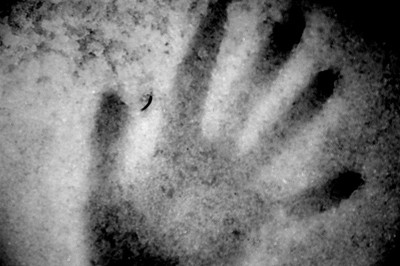(ta·mil dra·ma·tist)
– noun –
[tam-uh-l dram-uh-tist]
The Tamil Dramatist is a species that is slowly being endangered, and rightfully so. The species remains ever vigilant in creating mountains out of molehills, getting themselves involved in issues that do not concern them in the slightest.
The Tamil Dramatist has many forms, and can also appear in combinations. A few of the more common sub-species are listed below:
The Denying-Dramatist
Certain dramatists believe that they abstain away from drama, that they hate it, and tell all potential mates, as well as anyone else who will listen that “this is who they are”. However, that illusion can be quickly cleared upon closer inspection of their relationships with loved ones and their past conflicts. Do not be fooled by their heart-felt statements of “hating drama” – this is one of the most dangerous of all dramatists, and they will manage to bring drama with them wherever they go.
The Attention-Seeker
Certain dramatists believe that when they create conflict, people will pay more attention to what they have to say. These dramatists don’t usually have anything useful to say or contribute to a conversation. However, given the chance to cry wolf, or create a sob-story out of what could have been expressed in 255 characters or less, the Attention-Seeker will use their tactics to illicit sympathy and attention, usually out of a “poor me” story. The typical “Drama Queen/King” also belongs to this sub-species.
The Saviour
In this author’s opinion, the saviour is the most comedic dramatist of all. The Saviour takes it upon themselves to try to save (but not limited to)
- The Tamil culture
- Other people
- Other people from their own decisions
The Saviour offers no real value or solutions to problems. Instead, they rant (often times, abusively and de-constructively) with the honest belief they are making a change for the better. However, the Saviour never reaps the rewards for their strongly worded rants and opinions. Their complete surprise that they cannot find anyone to agree with their opinions (other than other Saviours) is often expressed with further anger and border-line, often over-the-top hate. These self-proclaimed “Great Protectors” refuse to find real solutions to their problems and are easy prey for their natural predators, Internet Trolls.
With the dawn of more and more open discussion forums, and a generation of Tamils that are able to assimilate well into the Western culture, Tamil Dramatists are quickly becoming an endangered species. The Tamil Dramatist are struggling to find their place in a world of flying cars and holograms.
However, nothing should be done to slow down their extinction. Some will find ways to focus on their own problems and the issues that they have direct control over, rather than concerning themselves in matters irrelevant to them. For others, reading Steven Covey’s “7 Habits of Highly Effective people” is strongly recommended. For those who cannot cope, this author strongly recommends they consider any open roles in a Tamil soap opera that can benefit from their uncanny ability to create an unnecessary storyline/conflict/drama out of something as simple as a Facebook comment.
It is important to see the warning signs and to be able to identify the Tamil Dramatist during the early steps of the relationship/friendship. No good can come from maintaining close relationships with a Tamil Dramatist. This is of utmost importance, and if goes unheeded the repercussions could be fatal, or even worse, becoming a Tamil Dramatist oneself. For dramatists are not only just born dramatists, just like great people, they can also be created.
Contrary to what the Tamil Dramatist may want you to believe, their presence will not make things in your life seem “more interesting.” If you are looking for entertainment, this author suggests you try wing suiting, travelling, snowboarding, or learning to fly a plane – these are things that will not only guarantee entertainment, but most importantly, it will make better use of your time.

 Edward Philip
Edward Philip












